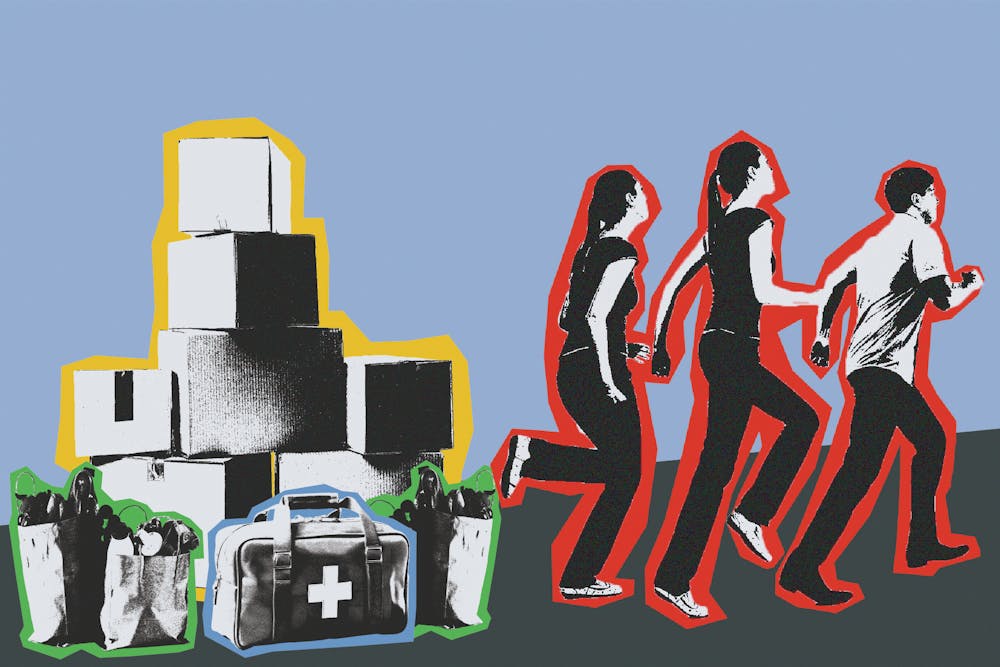There’s no doubt that people in society know how to support each other. After any crisis — a natural disaster, a global pandemic, a school shooting — donation drives are set up, thoughts and prayers pour in on social media and people are generally kinder and more empathetic to those around them.
But this community only ever comes after a tragedy. And it never lasts more than a few weeks.
The post-crisis community is shortsighted. After a few volunteer activities, a post on Instagram, a warm meal hand-delivered or a protest, our attention span runs out, and we move on, leaving the victims of the crisis still reeling and the issue largely unsolved.
Take Hurricane Helene, for example. In the weeks following the disaster, everything from club meetings to concerts were focused on supporting those who had been affected. All of North Carolina was united and focused on support. By now, the unity has died down, and attention has shifted away. However, much of western North Carolina is still in crisis mode.
Asheville and surrounding counties are still working to restore clean drinking water to homes, and it is unclear when this issue will be fixed. Houses and apartments are uninhabitable due to lack of electricity and water, as well as storm-related damages. Eviction rates are set to spike due to increased costs to fix damages, and people have nowhere to go as temporary shelter options are often located in other states.
It’s not just natural disasters. Consistently after a shooting, there is a public outcry, both on social media and in the form of protests or memorials. We talk about the lives lost and the need for stricter gun laws, but move on after a few days and wait to care again until the next occurrence of gun violence.
The cycle of crisis, support and then disregard is never-ending. As a society, we are desensitized to the perpetual pattern of tragedies — not yet to the point of neglect, but to the point of only holding our concentration and focusing our care for a few weeks at most.
It’s disappointing that the only time we can truly come together as a society is when people are dying. We shouldn’t wait for an occurrence of mass death to be inclined to support and care for each other.
I’m not saying that the unity and support we experience after a tragedy is bad. In fact, it’s a model example of the unity we can and should have consistently. What I am saying is that this performative, temporary and impromptu community is disheartening when considering the future and the stakes of genuine problems facing our world.



